Lemons Bringing the Community Together
Project Lemon Aid aims to establish a baseline population survey of juvenile lemon sharks at sites around Turks and Caicos and to investigate if the females return to the same mangroves they grew up in. The first stage of this research involves tagging the baby to sub-adult lemon sharks in the coastal waters, focusing on crucial mangrove habitats. The PIT tag, similar to the one you may tag your dog or cat with, will stay with the animal for the rest of its life (at least twenty years) and, if sampled again, will reveal growth and migration around the islands of these sharks. Also, genetics from a tiny fin clip on the shark’s dorsal fin will help us reveal family trees of the lemon sharks inhabiting the area and see how the Turks and Caicos populations are related to the Bahamas and Florida lemon shark stocks.
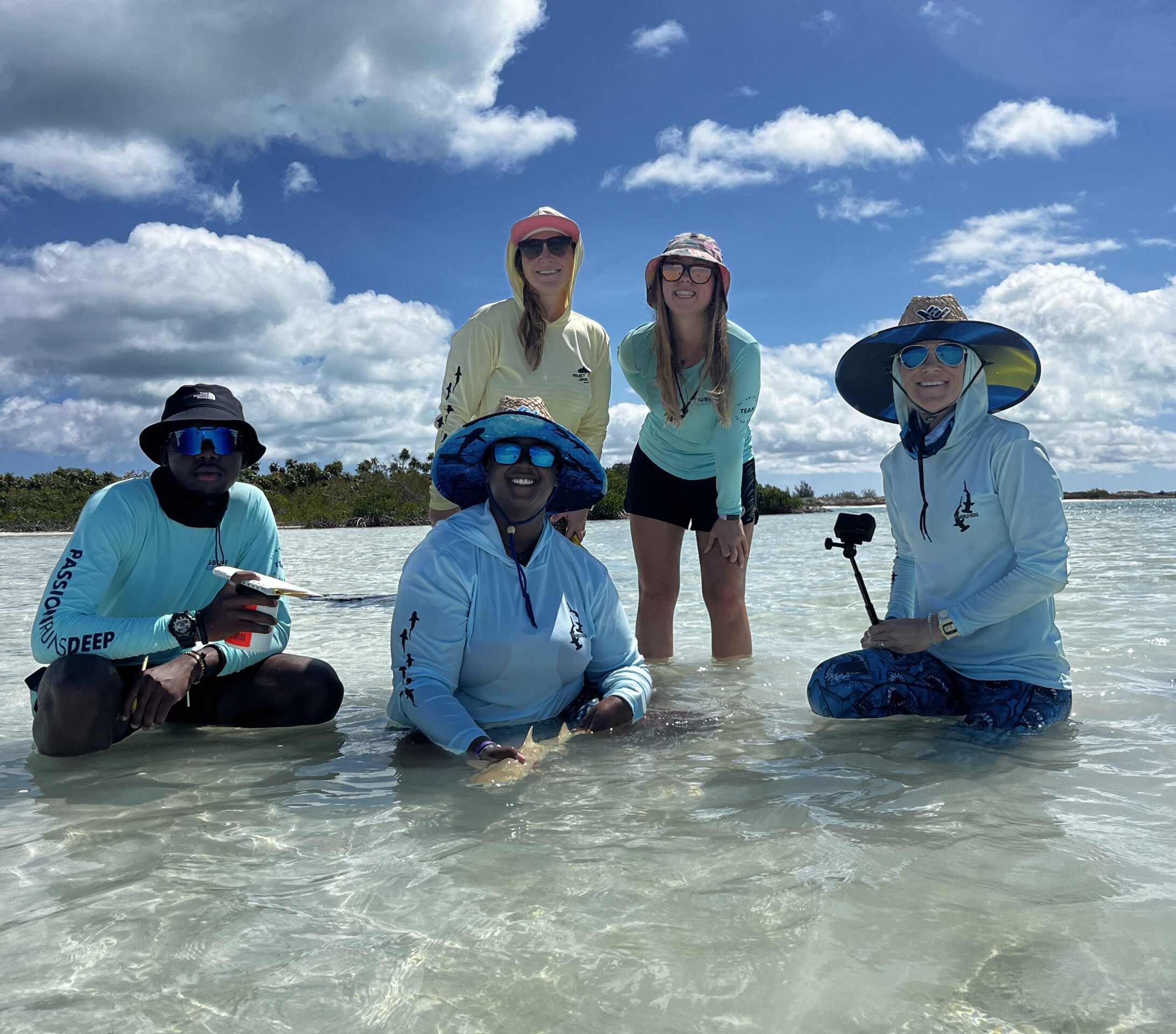
Photo © Maria Dominga
Since its inception, a critical part of the project has been including the local community, ensuring local stakeholders have a voice. Aligning with Sharks4Kids’ mission, our initial focus was on schools and students, but each year, we’ve expanded on this, engaging even more people.
This year, students from Clement Howell High School, Provo Middle School, Precious Treasures, and Alpha Christian Academy became marine biologists for the day. Every student tagged a shark and participated in all aspects of the data collection during scientific workups. They took the measurements, collected tissue samples, and made observations.
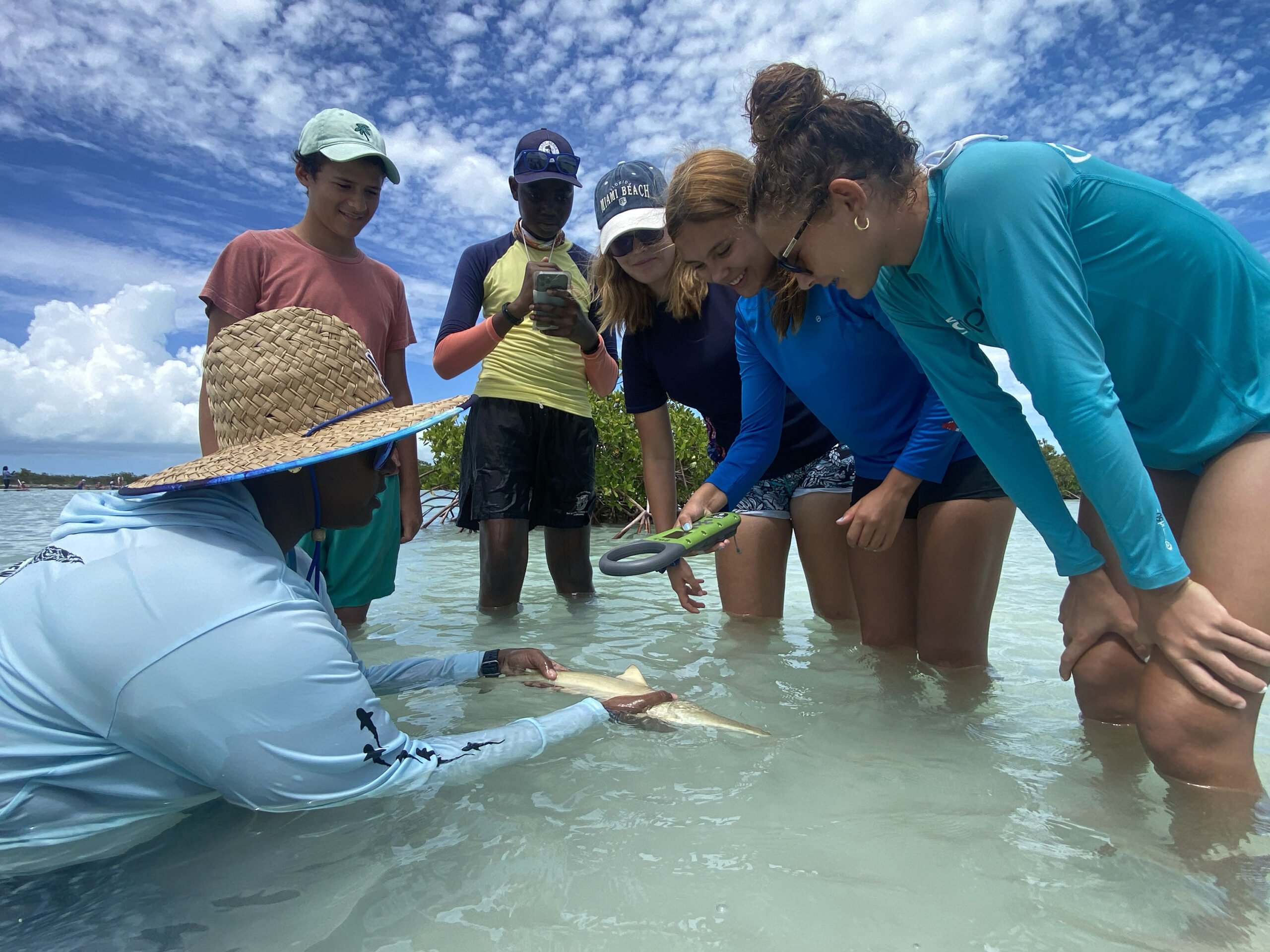
Photo © Duncan Brake
In addition to students, this year, we were joined by DECR Intern Rashante Garland.
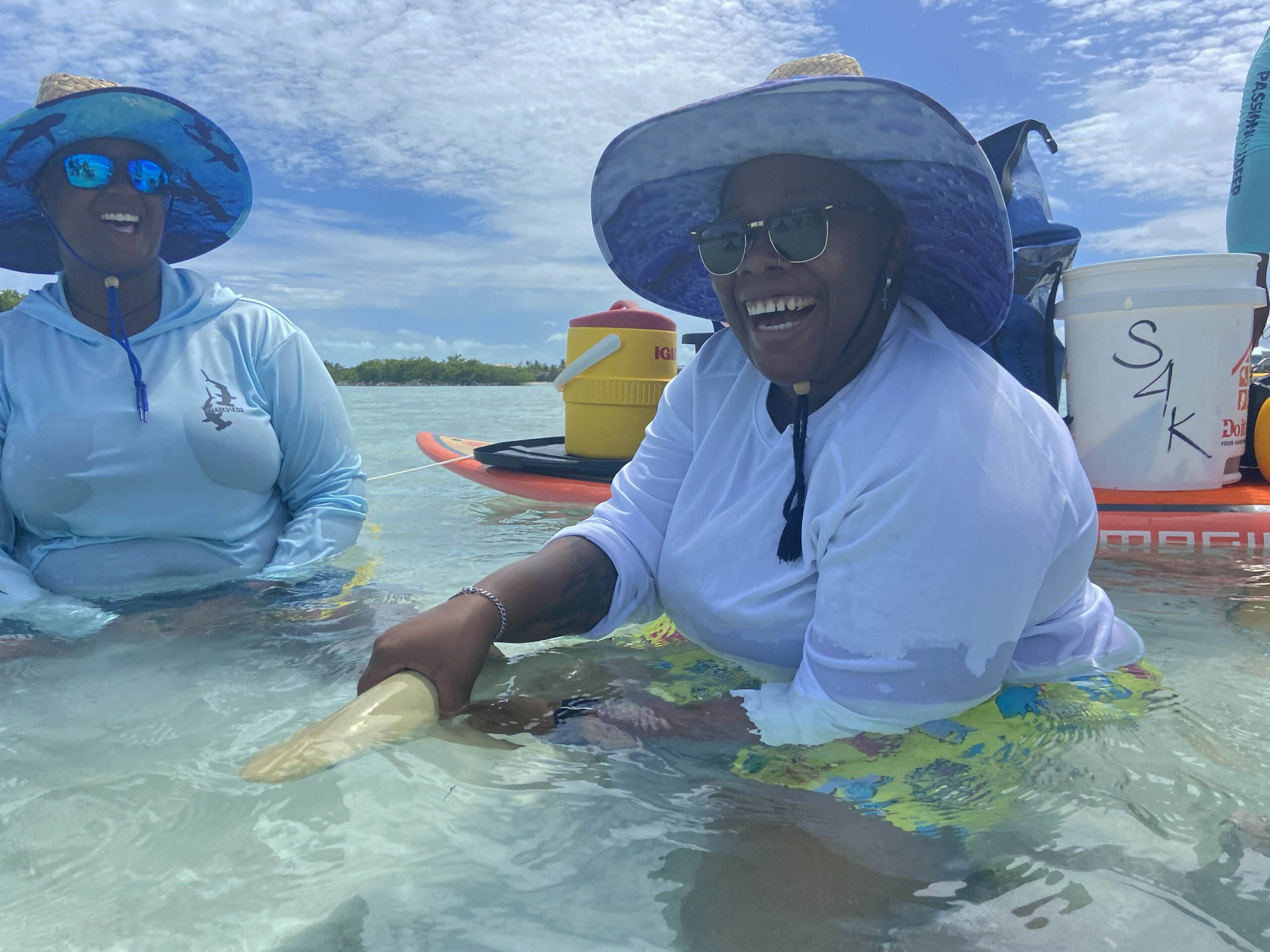
Photo © Duncan Brake
We were also joined by DECR staff member Luis Serpas, the National Park Facilities Manager, who has been involved with the project since year 1. Sharks4Kids was thrilled to have him back in the field. He is continuing to gain experience and learn.
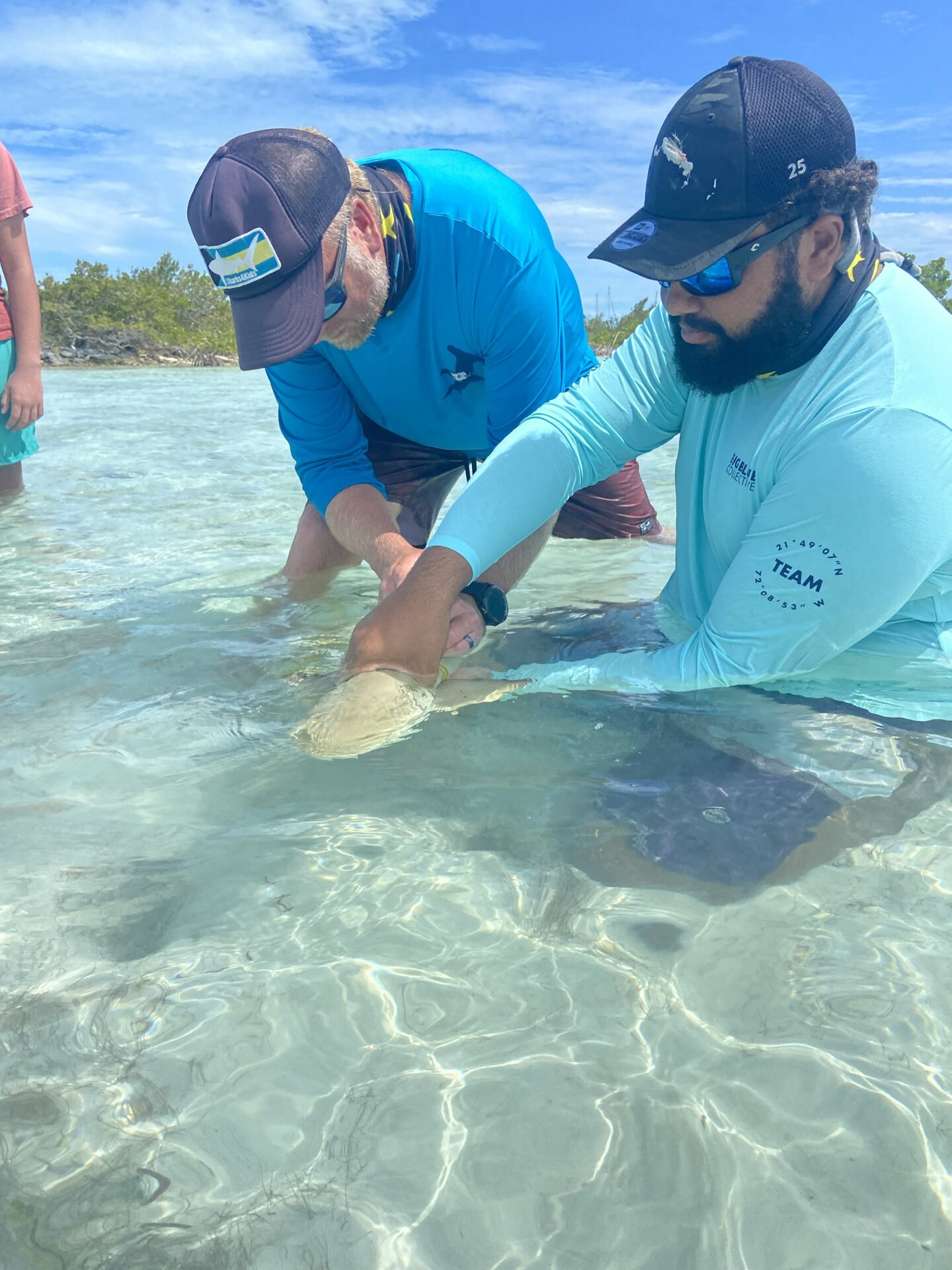
Photo © Candace Fields
This year, we were also excited to have someone from Fisheries join us in the field. Destiny Missick, Scientific Officer Department of Fisheries and Marine Resource Management, spent a day on the water to learn about Project Lemon Aid.
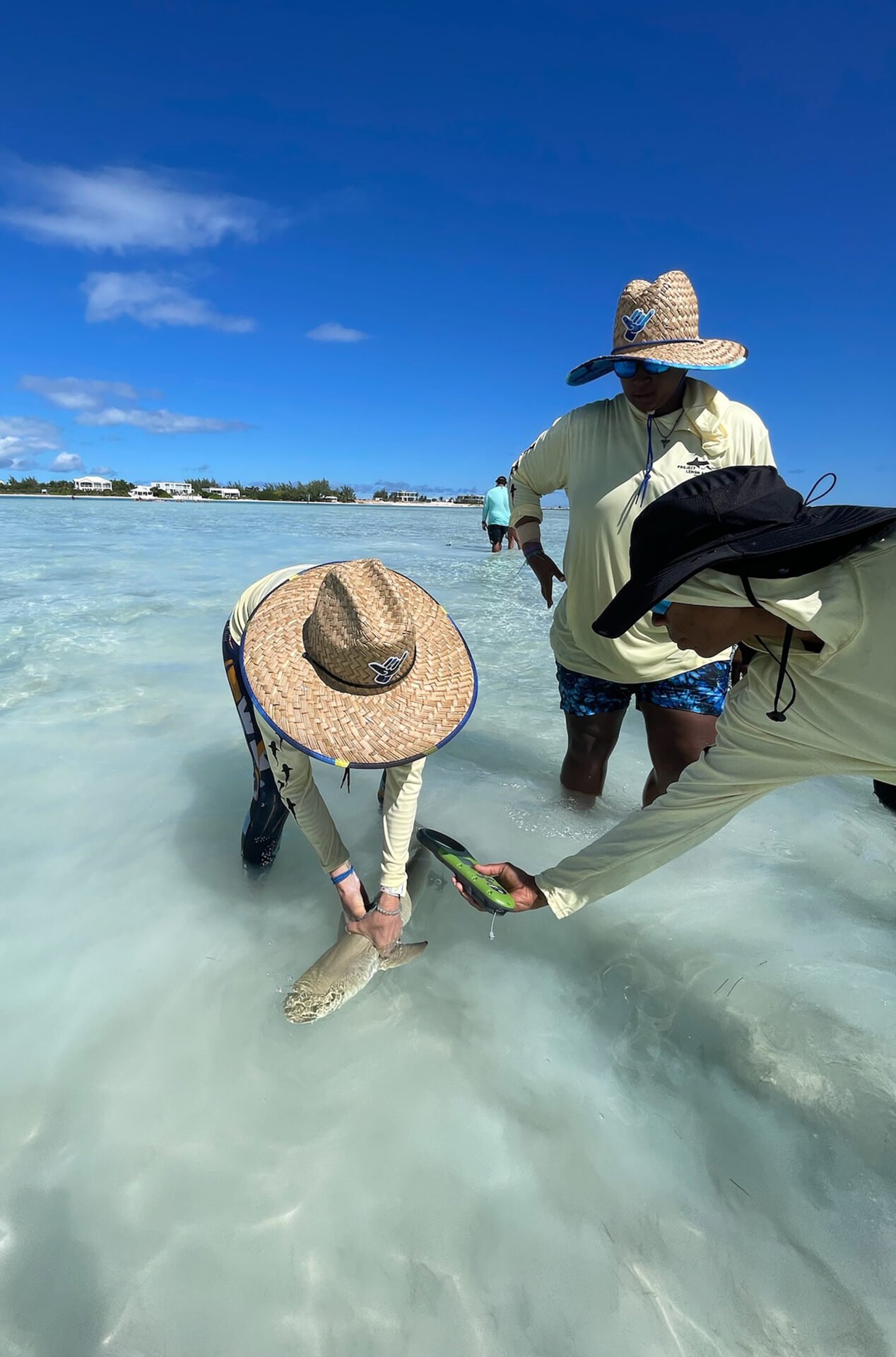
Photo © Philip Shearer
Fear and misunderstanding about sharks exist around the world. We can change the conversation if we continue to spread education and share the experience with community members. Nothing is more powerful than first-hand experience in helping people understand why sharks are important and why we are studying them. Together we can make an impact and create sustainable conservation initiatives.
